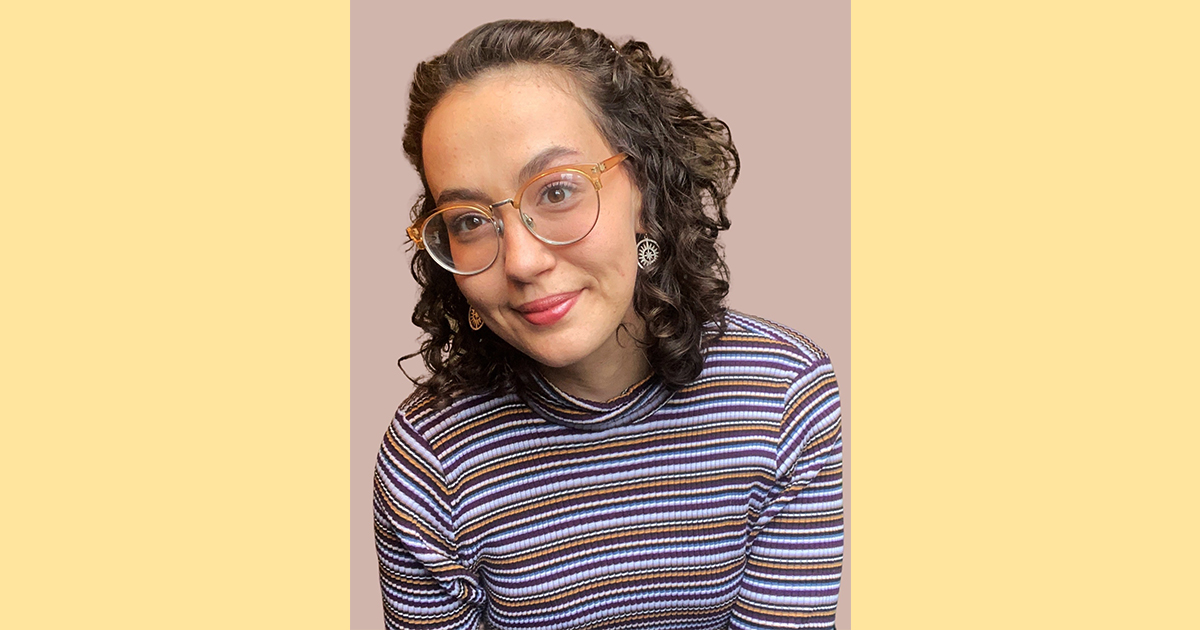Strengthening Inclusivity: Interconnections of Women’s Rights and Disability Rights
March 21, 2024

Izzy Bailey.
Izzy Bailey began noticing that something wasn’t quite right with her vision a few years ago. Blurriness began to occur more often, yet she didn’t think much of it, assuming it was merely a strain or something else.
Once her vision began to worsen, she went to the optometrist, searching for an answer. Four months later, she was shocked when the diagnosis came back as serpiginous choroiditis, a rare inflammatory retinal condition that causes progressive blindness. Izzy’s condition has progressed to the point where she no longer has central vision.
In four months, Izzy went from having 20/20 vision with corrective glasses to around 20/21,000, which means that optometrists can no longer use the traditional charts to test vision and instead use a method called ‘finger counting.’
"Literally, they'll sit in front of you and ask, ‘How many fingers am I holding up?’ to measure,” Izzy described. “It was a pretty swift transition, which is not always typical. Most people would be surprised, like sometimes you have a blind spot, and you can just not notice it at all; your brain is really good at compensating.”
According to the American Academy of Ophthalmology, serpiginous choroiditis is a chronic, recurrent, and progressive disease that typically affects people 30 to 60 years of age. In addition, it occurs in less than 5% of cases of posterior uveitis, or inflammation in the back of the eye, according to a research article published in the National Library of Medicine.
Izzy has had to adapt to the new world of her vision disease. Reading print and recognizing faces are difficult for her now, and working on a computer can be challenging.
“There’s many preconceived notions about what a specific disability looks like,” she said. “I walk with a white cane, so that is an indicator to other people that I can’t see, but then, I might look at my phone or something. It’s existing in the space where you’re not necessarily fitting into the box that other people create for you, which can be pretty challenging.”
Since November 2022, Izzy has worked as a health equity coordinator at the Maine Center for Disease Control and Prevention (Maine CDC)’s Tobacco and Substance Use Prevention and Control Program through MCD Global Health while living in Fairfield, Maine.
“As we celebrate Women's Month, let us remember that women’s rights and disability rights are interconnected.”
“In addition to my professional role, I’m passionate about advocating for accessibility and inclusion in all spaces,” she said. “I’ve experienced firsthand the challenges that people with disabilities face daily, which has fueled my commitment to promoting practices and policies that ensure equal opportunities for all people.”
After living with her disability for over a year, Izzy has come to realize the lack of inclusion for those with disabilities and how that can impact their confidence and ability to find work.
“I’ll see job posts pop up, and I’ll look at them and under qualifications it says that you need sight, hearing, and the ability to lift 30 pounds, and this was for a remote project management job, and I’m like, ‘Why do you need that?’” she said. “All that says is these companies aren’t thinking creatively about the position or that they don’t understand the access technologies that exist.
“Again, this preconceived notion about what people with disabilities can do and that’s obviously very discouraging because before you can even have a conversation to try to prove yourself, you’re removed from the selection criteria immediately.”
Along with dealing with issues of inclusion, Izzy has also faced other challenges throughout her career in behavioral health, such as unequal pay, lack of representation in leadership positions, and discrimination.
“However, I’ve had the opportunity to collaborate with inspiring women, break down barriers, and pave the way for future generations of women in my field,” she said.
To help decrease barriers for women, specifically women with disabilities, Izzy believes that by challenging stereotypes and discrimination and advocating for inclusivity, many of these systemic barriers can be broken down.
“My journey as a visually impaired woman has shaped my perspective and given me a deep appreciation for the importance of diversity and inclusion,” she shared. “As we celebrate Women's Month, let us remember that women’s rights and disability rights are interconnected.”